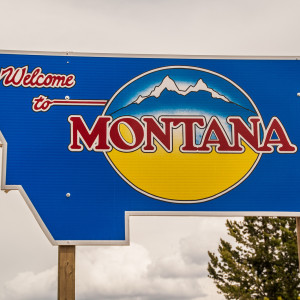Montana sits on one-third of our nation’s recoverable coal reserves. These reserves are valued at more than 1.5 trillion dollars on the global marketplace. However, due to outdated and insufficient infrastructure, we are unable to get the coal to markets along the Pacific Rim; so the coal sits in the mines, while Montanans are left without work.
It’s fixable though. There is currently a critical infrastructure project awaiting federal and state approval in Washington State, the Gateway Pacific Terminal (GPT). This project will create a seaport in Northwest Washington which will allow us to export our coal while putting folks back to work and generating much needed revenue to fund local infrastructure, education and public works projects.
Project organizers submitted a proposal to Washington State, the Army Corps of Engineers and the federal government more than two years ago. As is common with job-creating, privately-funded infrastructure projects though, nothing has happened—not even a draft Environmental Impact Statement. I will not stand by idly as the Gateway Pacific Terminal becomes the next Keystone.
I recently sent a letter to Washington State’s Governor Jay Inslee advocating for the GPT. It’s not just good for Montana; it’s good for Washington State as well. In Washington alone, more than 4,400 jobs will be created if the project is approved. With the January 2015 unemployment rate hovering above 7 percent in the city where the GPT will be built, those are welcome jobs. For Montana, building the GPT also means more employment opportunities in rail, mining, agriculture, manufacturing and other industries.
Most of the coal in Montana sits under the Crow Nation. They have been mining coal on their lands here in Montana for over 40 years. The Crow Reservation is estimated to hold about 9 billion tons of coal. Fully tapping into their reserves—one of the largest coal reserves in America—would provide vital opportunities for economic growth for the Crow people who often face unemployment rates above 50 percent.
I’m proud to work with Senators Daines and Tester to make the Indian Coal Production Tax Credit permanent, which will make the coal more affordable to mine; but simply making it more affordable to extract is not enough. We also need the infrastructure to get the product to market.
With more than $770 million in private financing, the cost to the government would be nominal; the benefits to our entire economy however, would be abundant. In addition to exporting coal, Montana would be able to increase exports of agriculture, timber and other dry, bulk-goods. That is why the project is supported by the U.S. Grains Council, the Montana Chamber of Commerce, the Montana Farm Bureau, Washington Farm Bureau, Treasure State Resource and Industry Association, and labor organizations like the Montana Brotherhood of Boilermakers, the AFL-CIO and local chapters of the International Brotherhood of Electrical Workers.
As the economic future of the Crow People, the State of Montana and Washington State, hangs in the balance, I urge Governor Inslee, as well as the federal agencies, to cut the red tape and act in a timely matter to approve and build the Gateway Pacific Terminal. Like the Keystone XL, this project has the potential to create thousands of jobs, generate millions in revenue for local governments, and tap into Montana’s vast energy resources. As Montana’s lone Congressman and a member of the Natural Resources Committee, I will continue to work with anyone and everyone willing to see this project actualize.
This piece was originally published by the Billings Gazette.

